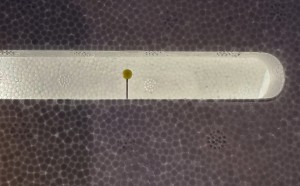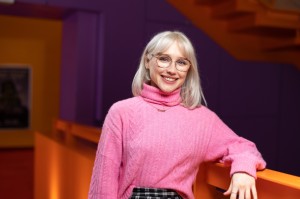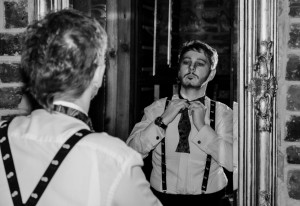Queer Contemporaries @ Air Gallery, Altrincham – Reviewed
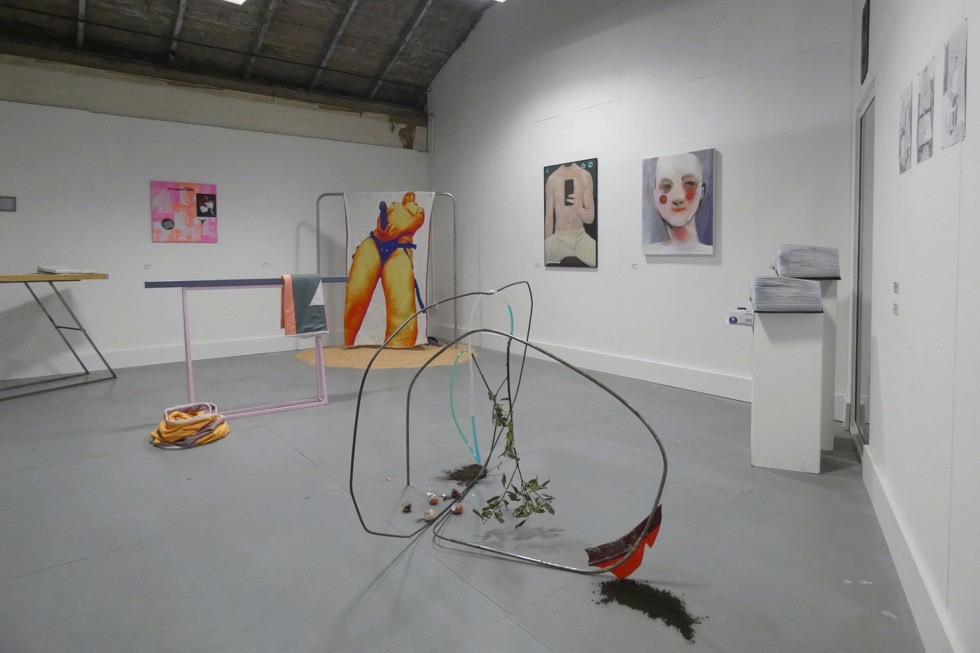
Connection, alienation and domesticity: Lucy Holt reviews Short Supply’s latest exhibition that speaks directly to a broad spectrum of queer experience…
There’s an ongoing conversation around the Cheshire town of Altrincham that things are changing. Once, not so long ago, it was named Britain’s ‘leading’ ghost town, its high street having the highest proportion of empty units in the country. The subsequent gentrification is palpable. But for all of its upmarket brunch spots and gyms, cultural offerings haven’t necessarily followed suit. Enter Short Supply, the ‘artist-led initiative and curatorial collective’ co-directed by artists Mollie Balshaw and Rebekah Beasley, who operate out of Islington Mill in Salford.
Having chosen Altrincham’s AIR Gallery as the venue for their latest exhibition, entitled Queer Contemporaries, the collective are forging a formerly non-existent channel of communication between the town which traditionally existed beyond the reaches of the parallel contemporary art centres of nearby Manchester and Salford.
Queer Contemporaries showcases the work of more than thirty queer artists at various stages of their careers, who are all, broadly speaking, local to the North West. The mechanisms of social distancing are evident: hot pink tape marks where we are to stand and not to stand in the queue, and indicates how to move through the gallery. Concerns of social distancing don’t hinder any engagement with the show: it is a treat to be back in a gallery space after months of experiencing the digital alternative.
At the gallery, Beasley explains that the through-line of the show is a loose one. The artists were simply asked to exhibit work that broadly spoke to the queer experience. That said, much of the work from the emerging and more established artists speaks to experiences of sexuality. For instance, Gori Mora’s painting 27 – GLA looks at connection and alienation through the lens of gay dating apps. While the territory might be one encountered before, Mora’s approach is deeply effective. We see only the bare torso of a young man taken ‘selfie style’. The body seems childlike, but we know from the profile information that he’s 27. Displayed in an ultra-glossy screen-like frame, there’s a sadness in its inaccessibility.
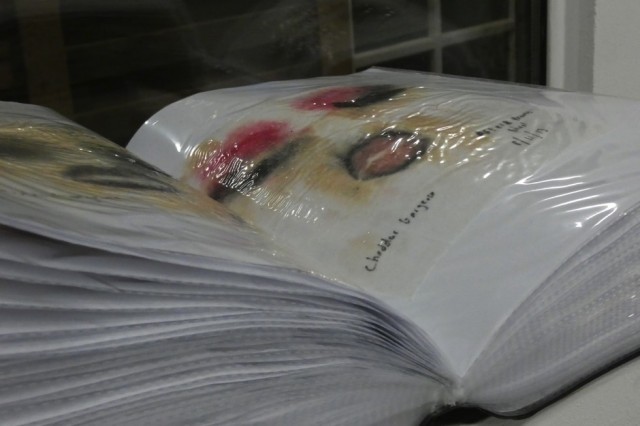
Elsewhere, self-documentation takes more playful forms. Cheddar Gorgeous’ face wipes tell the stories of nights out, dating back for years. Each wipe is the preserved imprint of a face decorated in drag make-up, dated and labelled with the name of the night club. It’s the quantity of the documentation that’s fascinating – hundreds of diligently preserved wipes in plastic wallets that you can rifle through. The precision and care involved in putting on and taking off a version of oneself, night after night, is evident.
Some of the show’s stand-out pieces are sculptural: Alexander Glass’ No Time To Say Goodbye and Garth Gratrix’s Shy Girl move away from self-documentation and towards exploration of form and space. Glass’ work assumes the form of an ironing board with folded shirts cast in plaster and resin; here, the artist makes solid a fleeting and quotidian act. Gratrix’s work also invokes the domestic, using what the artist describes as found objects and household emulsion to create minimalist sculptural forms which hint at would-be practical purposes, yet simultaneously render them obsolete, allowing for a critique of hetronormative domesticity.
Thomas Lee Griffith’s Lockuh 1 takes the form of a stack of municipal lockers which are concave and slumped to the floor. In one of the lockers there’s an iPhone, playing a video on loop. There is a performance of physical activity. The utilitarian nature of the lockers invoke the complex space of the communal changing room, with vulnerabilities hidden within.
The appeal of a show like Queer Contemporaries is that it contextualises representations of LGBTQIA+ experience amongst a host of other practices that aren’t necessarily just about identity. It’s a pleasure to see its breadth and ambition. May Short Supply continue to offer such a scope and platform, with the ingenuity and energy to employ lesser known spaces, and provide a promising alternative to a city centre-centric model of exhibition curation.
Lucy Holt
See Queer Contemporaries at Air Gallery, Altrincham until 19 September 2020 – free entry – or view online here
Installation images courtesy Short Supply
Read “Short Supply has really gained traction” – Prospering Post-Graduation



